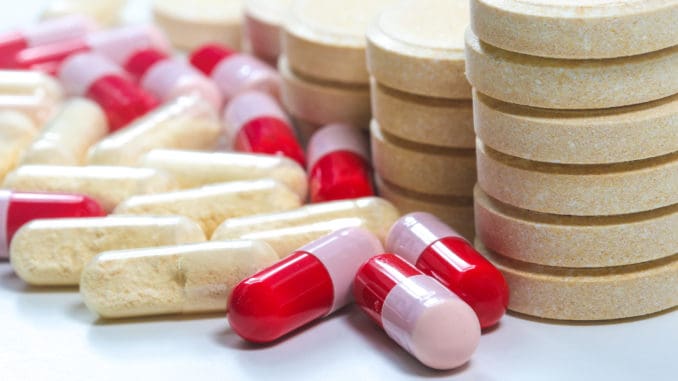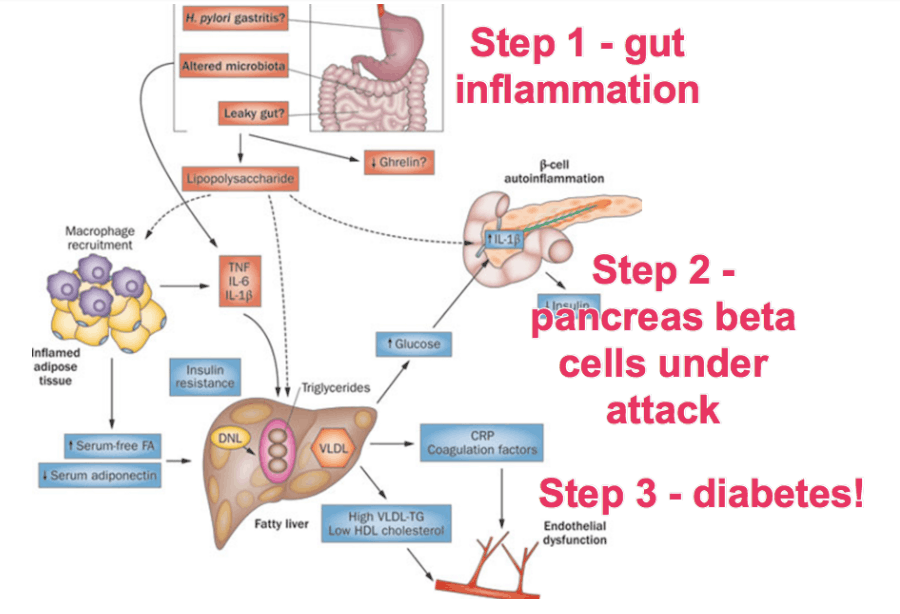
[cmamad id=”20861″ align=”center” tabid=”display-desktop” mobid=”display-desktop” stg=””]
Should you take probiotics in these cases?
—–Important Message—–
How to get an erection whenever you want to (100%)
I’ve learned three things that have helped me overcome erection problems completely:
1. The “hidden finger” trick. It makes it 100% certain I’ll have intercourse, no matter what. What a great feeling. No more worries, ever.
She won’t know the difference once you are inside her. With the “hidden finger” trick, she can come again and again, even if I am not hard (she can’t tell)…
This works by creating more connection points between the brain and your penis… And with more connection points you get hard faster and your erection lasts longer…
Even if you start out soft, you won’t stay soft for long.
So now, I know that it is CERTAIN that I’ll perform sexually every time…
And this is just one of three specific activities that allow you to get an erection whenever you want to…
———–
Study reveals shocking probiotic secret
In my local Walgreens, there is an entire new shelf in the “gut health” section.
It’s full of much-hyped and well-marketed probiotic supplements.
These supplements are supposedly harmless…
And they supposedly have all kinds of health benefits – from helping with your mood to helping your gut move on the right schedule.
Probiotics are even marketed in that popular yogurt brand, Activa.
But do probiotics actually help? And are they really harmless?
As it turns out, maybe not so much.

Probiotics in food vs. supplements
Before we get into this, let me define what I’m talking about here.
Probiotics are “live microorganisms that, when administered in adequate amounts, confer a health benefit on the host.”
There are probiotics in the foods we eat every day.
They occur naturally and are just part of the normal stuff that makes up your gut.
That’s not what I’m talking about in this article.
There are also probiotics you can buy in supplement form over the counter.
They come in all kinds of variations and brands.
It’s those supplements that I’m talking about in this article.
[cmamad id=”20862″ align=”center” tabid=”display-desktop” mobid=”display-desktop” stg=””]
The myth
Many people think probiotics are the most important thing you can do for your health…
For example, lots of people think they are essential for getting your gut bacteria back into shape after a round of antibiotics.
The reality of what probiotics ACTUALLY do is quite different.
“People have thrown a lot of support to probiotics, even though the literature underlying our understanding of them is very controversial – we wanted to determine whether probiotics such as the ones you buy in the supermarket do colonize the gastrointestinal tract like they’re supposed to, and then whether these probiotics are having any impact on the human host…”
The real question is, do they actually do anything?
And if so, are the harmful, helpful or neutral?
The resisters
This study is fascinating.
Most studies of this type are done by measuring excrement. But that’s a problem because it’s not accurate.
What shows up in the stool is not the same as what shows up in the gut.
“Although all of our probiotic-consuming volunteers showed probiotics in their stool, only some of them showed them in their gut, which is where they need to be…”
In fact, some people were active resisters to probiotics and expelled them from their bodies.
“The probiotics successfully colonized the GI tracts of some people – called the ‘persisters’ – while the gut microbiomes of ‘resisters’ expelled them.”
This means that the standard supplements don’t actually do ANYTHING for some people and are an entire waste of money.
But it gets even worse.
Antibiotics and probiotics
Generally speaking, the standard advice is to take probiotics after a round of antibiotics in order to restore the good bacteria in the gut.
But, increasingly, this is looking like a bad idea – it might even be harmful.
This study divided the participants into three groups.
They gave one group nothing special, one group probiotics, and the third group an “autologous fecal transplant” (bacteria from their own poop).
“The third group was treated with an autologous fecal microbiome transplant (aFMT) made up of their own bacteria that had been collected before giving them the antibiotic.”
And the results were surprising…
The group that got the probiotics all had good gut colonization, but their guts didn’t return to normal.
In fact, the probiotics KEPT their guts out of sync for months.
“After the antibiotics had cleared the way, the standard probiotics could easily colonize the gut of everyone in the second group, but to the team’s surprise, this probiotic colonization prevented the host’s normal microbiome and gut gene expression profile from returning to their normal state for months afterward.”
But the transfer of bacteria from the patients’ own fecal matter had them back to normal within days.
“In contrast, the aFMT resulted in the third group’s native gut microbiome and gene program returning to normal within days.”
At best, probiotic supplements seem neutral…
And, at worst, they really screw up your gut after antibiotics.
I say, save your money – to keep your gut healthy, eat lots of ripe fruit and get some exercise!
Some natural probiotics you can include in your diet regularly:
Greek yogurt, dark chocolate, green peas, sauerkraut, kombucha, kimchi, kefir, miso, natto, tempeh, green olives, pickles, sourdough bread, beet kvass, cottage cheese, and soft aged cheeses such as gouda and cheddar. (Many of these are soy products, but they are fermented and that takes the badness out of soy.)
——Important Message——-
Can you heal diabetes by healing your gut?
See this diagram:

It turns out that gut inflammation is perhaps THE #1 cause of diabetes.
The inflammation travels from the gut into the pancreas, where it attacks beta cells and messes with your blood sugar…
And that’s why this simple cellular smoothie may reverse the ravages of diabetes…
It’s like a chain reaction of healing – the inflammation in your gut goes away, then you start getting normal blood sugar levels. And before you know it, your diabetes is gone.
Click here for your gut inflammation-beating, diabetes-reversing cellular smoothie
—————–

- Human gut study questions probiotic health benefits
https://www.sciencedaily.com/releases/2018/09/180906141640.htm - Personalized Gut Mucosal Colonization Resistance to Empiric Probiotics Is Associated with Unique Host and Microbiome Features
https://www.cell.com/cell/fulltext/S00928674(18)311024_returnURL=https%3A%2F%2Flinkinghub.elsevier.com%2Fretrieve%2Fpii%2FS0092867418311024%3Fshowall%3Dtrue - Post-Antibiotic Gut Mucosal Microbiome Reconstitution Is Impaired by Probiotics and Improved by Autologous FMT
https://www.cell.com/cell/fulltext/S00928674(18)311085_returnURL=https%3A%2F%2Flinkinghub.elsevier.com%2Fretrieve%2Fpii%2FS0092867418311085%3Fshowall%3Dtrue - Probiotics 101: A Simple Beginner's Guide
https://www.healthline.com/nutrition/probiotics-101 - https://www.webmd.com/digestive-disorders/what-are-probiotics#1
- https://www.healthline.com/nutrition/8-health-benefits-of-probiotics#section9
- https://www.healthline.com/nutrition/probiotics-101
https://nccih.nih.gov/health/probiotics/introduction.htmHealth benefits of taking probiotics - Harvard Health
https://www.health.harvard.edu/vitamins-and-supplements/health-benefits-of-taking-probiotics
Do you know that there are a million bacteria and yeasts in the body that helps in breaking down the food we eat into soluble nutrients?
Not all bacteria are bad for us, as we think. Many, which thrive in our digestive tracts and the gut helps in digestion and works with the naturally produced enzymes in our body. Probiotics are the oral form of these good organisms or bacteria that can be taken in a supplement form to boost the existing good bacteria in our body.
Many research studies show that physical disorders are caused by an imbalance of this good bacteria composition in the body. Due to natural causes or due to the use of antibiotics, any reduction in the composition of the bacteria in the body can lead to the onset of diseases that are related to the digestive system. This may affect other body processes and even affect the immune function.
This is exactly where probiotics can help. One good bacteria, the "Lactobacillus", is commonly found in yogurt and in many fermented foods. This bacterium is very beneficial for treating diarrhea. Others like "Bifidobacterium" which is also found in dairy products have been found to treat Irritable bowel syndrome. According to some estimates, the human gut consists of as much as 1000 different varieties of microorganisms and each of them plays a crucial role in the upkeep of health.
Did you know that some kind of these good “organisms” helps to manufacture vitamins like Vitamin K?
Probiotics, when consumed, provide a variety of benefits. By boosting the levels of good bacteria in the body, Probiotics have been found to positively affect digestive issues, some kind of allergies, obesity challenges and even mental health problems.
Did you know that Probiotics intake has been linked to improvement in conditions like Anxiety, Depression, Autism and even Obsessive-compulsive disorder?
Probiotics have been proven to reduce inflammation of the skin tissues and have also been found useful for acne and eczema.
Researchers have found that certain kinds of probiotics can also aid better cardiovascular health. Probiotics can help lower the LDL or bad cholesterol and increase the levels of Good cholesterol. Some probiotics also help reduce blood pressure in those who suffer from high BP levels.
The most important benefit of Probiotics is the maintenance of good digestive health. Probiotics are beneficial in the treatment of certain disorders like Crohn's disease and ulcerative colitis. Probiotics may also help with weight loss, according to some researchers. It prevents the absorption of fat into the intestines that are excreted through the feces, than being stored in the body. Probiotics help to burn more calories. For example, according to one study dieting women, who took a strain of probiotics for 2 months, lost around 30% more weight than those who did not take a probiotic.
Naturally occurring probiotic bacteria are found in fermented foods like pickled vegetables, kefir, kimchi, sauerkraut and in soy products. In supplement form, probiotics are usually considered safe for consumption for most people. But in some cases, there may be certain side effects like mild bloating and gas issues. This is temporary, as the body adjusts to the new organisms. But if you are suffering from any major diseases like immune disorders, it is recommended to take your doctor’s advice before you start on probiotics.

Leave a Reply